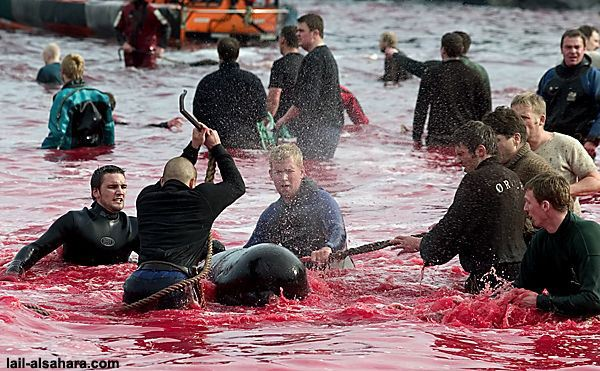Friday 23rd July 2010
Campaign Whale has received the distressing news that 100 pilot whales were driven ashore and cruelly slaughtered this morning at Tórshavn, the capital and largest town in the Faroe Islands.
Just four days ago on July 19th, a pod of 236 pilot whales were killed at the town of Klaksvik. Sadly, there has now been eight recorded whale hunts this year with around 668 pilot whales and 21 Risso’s dolphins killed so far. 
In 2008, the Chief Medical Officer of the Faroes, and a doctor from the Department of Public and Occupational Health, issued a joint press statement saying the meat and blubber of pilot whales was no longer fit for human consumption because of the increasingly high levels of mercury and other toxic pollutants it contains.
Campaign Whale Director Andy Ottaway said “People will be shocked to learn of the cruel mass killing of whales and dolphins in the Faroes. This appalling slaughter must end. It is an unfolding tragedy for the whales and the people that are eating them. The Faroese are ignoring stark warnings from health experts that pilot whale and dolphin meat is dangerously laden with mercury and other toxic pollutants.”
For further information about whaling in the Faroes, and how you can help our campaign to stop it, please click here.







